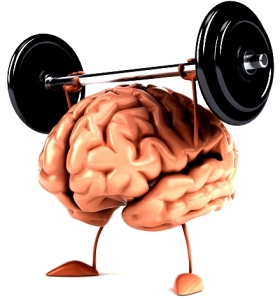WHAT, WE’RE MAKING BUZZWORDS AGAIN?
[TORONTO] We are right to be leery of each and every new psychological term that tries to invade our lives. We’re not about to fall for a repackaging of something we already bought. Nor do we need to live up to some diabolical new yardstick for job performance, school progress or (worst of all) self-worth. And in truth, emotional intelligence (EI) is not new. It is simply a neglected part of ‘intelligence’ itself, even as IQ test-builder David Wechsler defined it, back in 1940. He meant this concept to include all abilities we need, to develop and to achieve, on our own terms. But he never presumed to pack all that into one handy test kit. Others began filling gaps. Today, measures of emotional self awareness, other-awareness and problem-solving are much stronger predictors of school success, career success and social satisfaction than any cognitive test you name. Now, the ‘testing’ of EI is in its infancy, but the work thus far by Mayer, Salovey and Caruso on their measure dubbed the MSCEIT at least demonstrates proof of concept and seems to have some actual problem-solving usefulness in adults’s lives. (Building child and adolescent versions of any whole new type of test tends to be trickier and can take longer.) The MSCEIT ahs not yet reached the status of an ‘evidence-based intervention’ to which your clinician should conscientiously turn, every time you or your friend or your adult child comes in feeling tortured by interpersonal emotional miscommunication or just realizing they can barely name their feelings after living with them for 40 years.
SO, CLEAR SELF-EXPRESSION IS IMPORTANT. NOT NEW!
True, but reptiles can do that.
 What our cold-blooded cousins are not so good at is managing the complex interplay of each other’s emotions, in ways that lead to supporting child development and later, to achieving shared goals. That’s a triumph of the mammalian mind. We can take the most unlikely,unpromising situations and turn them to the benefit of all parties—or not.
What our cold-blooded cousins are not so good at is managing the complex interplay of each other’s emotions, in ways that lead to supporting child development and later, to achieving shared goals. That’s a triumph of the mammalian mind. We can take the most unlikely,unpromising situations and turn them to the benefit of all parties—or not.
ASK ANY SEASONED PROJECT MANAGER,
much-loved parent or happy classroom teacher. In fact, ask the U.S. military. Using EQ-i testing to select recruiters saved the Air Force nearly 3 million dollars. (Maybe you thought an idea that sounds so warm and cozy just had to be a feel-good campaign; a consultant’s boondoggle.)
HAVEN’T WE GOT RELIGION, FOR THIS?
Good point. In fact, Daniel Goleman, a key author in the field, has heard from faith leaders across a broad range of traditions, that EI looks like one way to measure the human qualities
that their faith teachings and community inspire. Sadly, the EI of self-defense is just as important as community. So don’t blink.
WHAT IF MY ADMINISTRATION WON’T BUY THIS, MY CHILD’S TEACHERS CAN’T GET TRAINING AND I’M NOT FEELING SO AMAZINGLY ‘EI’ MYSELF?
Then you would be in good company with a lot of folks. But there is much you can do, on your own. If you already practice traditional, Indian yoga, traditional martial arts (such as Tae Kwon Do) or mindfulness meditation, then you’re probably already good at recognizing and managing many of your own emotions. If you’ve gained ground in a psychological therapy that promotes recognizing of others’ emotions, and emotional problem-solving (such as emotion-focused therapy, child-parent attachment work or interpersonal therapy) then you have also increased your skills in perception of others’ emotions; your reach and depth of reflective thought; and your total range of responses from which you can wisely choose before speaking or acting.
Book-clubbing a major EI author or two (see below) or reading-up with a trusted friend or your partner, then discussing how EI skills play out in your daily lives, can help. Journaling about situations at work or home, predicting outcomes of your response options, is invaluable. And remember:
SCHOOLS NEED VOLUNTEERS AS MUCH AS PARENTS NEED KIDS TO HELP AROUND HOME.
 Thoughtful, adult team-work in a ‘safe’ place where you are not being constantly evaluated, and don’t have to focus on parenting, is a great proving-ground for new EI skills. Most parent volun-
Thoughtful, adult team-work in a ‘safe’ place where you are not being constantly evaluated, and don’t have to focus on parenting, is a great proving-ground for new EI skills. Most parent volun-
teers feel appreciated—hugely. And you may find an educator on a similar journey of growth. And by the way:
SOCIAL-EMOTIONAL LEARNING (SEL)
is just school talk for teaching EI skills in the classroom. SEL programs improve student behaviour, reduce peer-on-peer aggression and raise academic achievement levels. And EI level itself better predicts the student’s career trajectory than top marks.
THIS SOUNDS LIKE A LOT OF WORK.
 It can be, especially if one had a parent (or two) who had their own trouble cult-ivating EI skills of any kind. And some of us are just plain born with greater challeng-es around developing EI. So-called ‘trait’ EI does not come naturally to all. The great news is that over time, ‘skill EI’ can be learned by pretty much anyone. It can go a long way in compensating for lack of trait EI. People who make progress in skill EI report stronger self-esteem, trusting bonds and work effectiveness.
It can be, especially if one had a parent (or two) who had their own trouble cult-ivating EI skills of any kind. And some of us are just plain born with greater challeng-es around developing EI. So-called ‘trait’ EI does not come naturally to all. The great news is that over time, ‘skill EI’ can be learned by pretty much anyone. It can go a long way in compensating for lack of trait EI. People who make progress in skill EI report stronger self-esteem, trusting bonds and work effectiveness.
POSITIVE LEADERSHIP = LOADS OF EI
 If you’re struggling in a leadership role, bring forward, in your reporting relationship, the track record of corporate EI training. There’s no down-side; just a startling upside.
If you’re struggling in a leadership role, bring forward, in your reporting relationship, the track record of corporate EI training. There’s no down-side; just a startling upside.
Business Case for Emotional Intelligence http://www.eiconsortium.org/reports
Women in Leadership http://t.co/PgiBRNSPD3
EI predicted success levels in nursing school http://www.ncbi.nlm.nih.gov/pubmed/23660239
Social-Emotional Learning in Schools http://www.edutopia.org/social-emotional-learning


